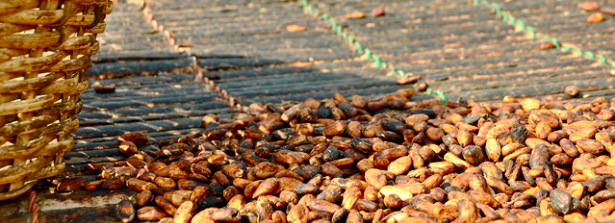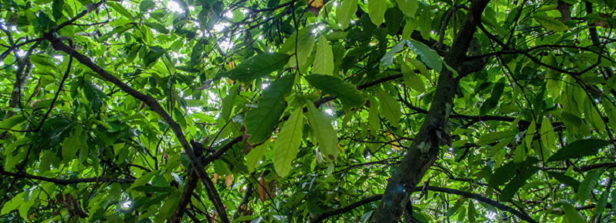Cocoa crop improvement, farms and markets in Ghana and Ivory Coast

Duration: April 01, 201 7 – September 30, 2020
Project information
Cocoa farmers in West Africa face poor productivity due to constraints at the crop, field, farm and sector level. To ensure farmers’ livelihoods, yields need to increase sustainably. This research will investigate the effect of field level practices on cocoa productivity. The suitability of different (combinations of) practices for different smallholder farm systems will be explored. Effective delivery of the services supporting these practices will be co-developed with public and private partners.
Aim: This project “Cocoa crop improvement, farms and markets: a science-based approach to sustainably improving farmer food security in Ghana and Ivory Coast” aims for science-based, sustainable intensification of cocoa production assuring high and stable production now and under future climate change and policy scenarios.
Objectives: The project has four main objectives:
- Develop methods to examine cocoa response to nutrients in monocultures and agroforestry systems, underpinning fertilizer recommendations.
- Develop crop growth models as explorative tools for improving and innovating cocoa production (now and in the future).
- Develop models that explore feasible, sustainable and robust technologies at farm level (now and in the future).
- Co-develop models for effective public/private service delivery at scale fitting the complexity of the cacao sector in Ghana and Ivory Coast.
Method: The project provides integrated crop-, field- and farm-level research exploring technical and socio-economically feasible options. Next to delivering soil-, crop- and farm decision support models, it delivers models to support effective service delivery at scale by public and private partners.
Countries: Ghana and Ivory Coast.
Dutch policy goal: Sustainable food systems.
Progress reports
Year 1: The project team has built two additional partnership programs with cocoa companies and national cocoa institutes in West Africa to work on integrated soil fertility management and business models for service delivery. These programs increase the access to research sites and cocoa farmers and will increase the possibility to share and implement research outputs at scale when these are ready for dissemination. Protocols have been co-created for on-station experiments to increase knowledge on shading, pruning and nutrient management of cocoa and for socio-economic and technical research at farm scale. With partners the initial research questions have been refined to better fit the demand of the sector.
Summary mid-term review: Together with cocoa companies and cocoa producing countries the researchers have identified a common problem: lack of knowledge on cocoa nutrition in full sun and shaded production systems. This knowledge gap prohibits the productivity increase needed to provide cocoa farmers with a living income and makes it difficult to develop cost-effective ways to support farmers with technical advice. To investigate the problem the project has established a new pruning-shading trial on a research facility of a company and uses an existing plot with older cocoa trees on the research station of the national research partner in Ivory Coast. The project developed a first version of a 3D model that builds cocoa tree architecture in response to shading and will allow to demonstrate the effect of pruning in the future. Both models serve to identify new research questions. The project developed a cocoa version of the COOLFARM model to assess the carbon footprint of different cocoa management practices. Building trust and fostering credibility the project has helped to spark the CocoaSoils partnership (see www.CocoaSoils.org) in which major cocoa and fertilizer companies, national research institutes from Ghana, Ivory Coast, Cameroun, Nigeria and international research centers will generate knowledge by sharing resources collaborating in experimentation and postgraduate capacity building.

